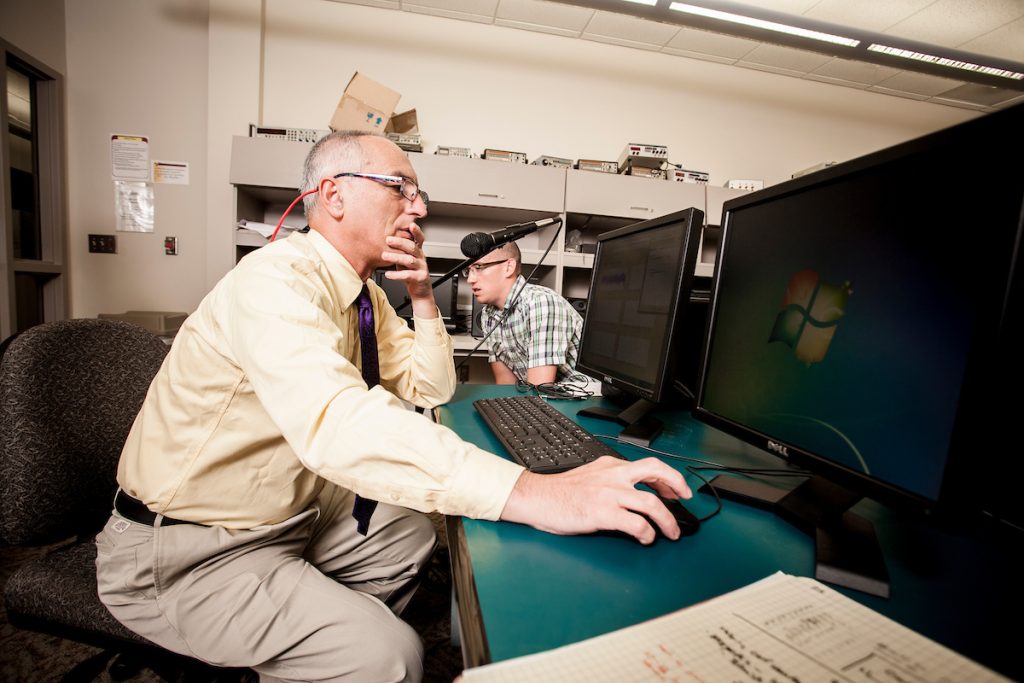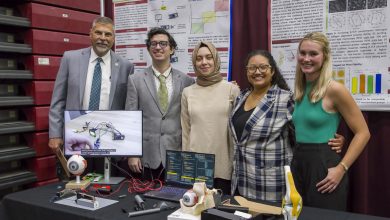COVID-19-Related Research Proposal May Be Next Step in Voice-Only Systems
The coronavirus pandemic has introduced a new, and sometimes challenging, facet to society: social distancing. How to receive services and conduct interactions under these restrictions is one of the more pressing challenges of the moment.
Enter Florida Tech and a science researcher building upon a decade of studies into speech recognition and related technologies who could potentially assist society with handling this change.

Veton Kepuska, a Florida Tech computer engineering and sciences assistant professor, has proposed the development of a voice-only system, aided by speech recognition, to substitute for physical interaction and help prevent potential disease contamination and spread.
Spurred by the COVID-19 pandemic, Kepuska is seeking federal funding to develop a prototype system, which he would then install into a humanoid robot that could communicate and perform tasks with potentially infected individuals. Kepuska noted a wide range of places this could be useful, from hospitals to supermarkets.
While it may not be feasible to develop robots that recognize speech and interact with humans during the peak of this pandemic, the research and development conducted now may potentially fuel a future aided by advanced, voice-only systems.
“I wish this research was happening under better circumstances, but this is what the scientists are here for – so the next generation has the knowledge to produce the technology,” Kepuska said.
Kepuska has already begun to work on a key element that will need to be considered for the proposal’s proof of concept: voice technology that is able to recognize context and tone of voice. For example, if two people are in a room talking, Kepuska wants to avoid having the technology misinterpret the conversation as a command.
Kepuska’s latest proposal is another example of speech-recognition research that spans nearly three decades. Since he joined Florida Tech in 2003, some of Kepuska’s accomplishments include development of a nursing call station voice-only activation interface for patients, which included research for ways to extend its capability for patients to control their beds, TVs and other connected devices. Kepuska also developed a voice-activated car inspection system prototype for BMW, which won first place in the First Annual Analog Devices & University of Massachusetts DSP Contest.
When asked about the future of voice-only systems in humanoid robots, Kepuska mentioned seeing this in 2006 with his paper, Leading and Trailing Silence in Wake-Up-Word Speech Recognition. Co-written with Florida Tech aviation human factors professor Debbie Carstens and then-University of Central Florida anthropology professor Ron Wallace, the paper discussed Kepuska’s graphical user interface design and implementation of a voice-only system, which was tested on a virtual elevator.
It is that foresight that will help provide solutions in an environment altered by the coronavirus pandemic.
###





